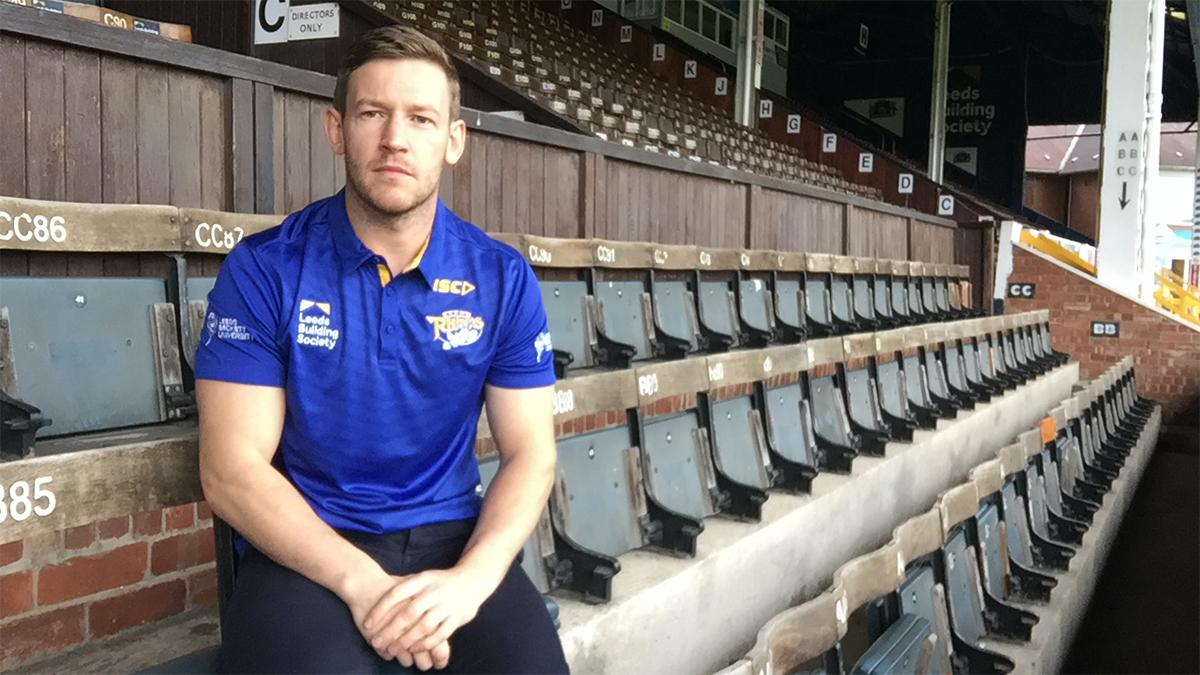Imposter syndrome is real! And any physio that tells you they have never questioned if they are good enough to do their job, at some point in their career, is lying!
I was as nervous as they come when I first graduated from the University of Bradford. One day I was sitting my last exam and next day treating professional athletes!

About Andy Barker
Andy Barker is a consultant sports and MSK physio.
He currently consults for the Football Association, alongside owning and running his own group of private practices.
The former head of physio and rehab at the Leeds Rhinos, in which he spent 10 years at the club, Andy currently also consults within professional rugby, professional dance and works closely with two world champion boxers.
Andy is also the author of The New Grad Physio which he started to help students and new grads transition from university into graduate therapy life and accelerate the learning and careers of new grad physios.
He has a host of free downloadable resources, a weekly blog and podcast, all of which you can find at www.newgradphysio.com
With the expectations as a ‘qualified’ health professional it is not uncommon to feel like an "imposter."
I did so many times during those early days as a new grad. Feeling inadequate and questioning whether or not I could do my job well and help the patients and athletes I was working with.
Whilst you should never put too much pressure on yourself in those early months as a new grad, that does not change those feelings of inadequacy and incompetence that you might feel.
As a new grad, remember that you are at the start of your therapy journey and with the right help and support, and a little work and dedication to your CPD, things will get better.
The reality of life as a graduate
It is one thing being a student physio, and a very different thing working as a qualified physio.
When you were at university, your ‘student’ title gave you the protection to get things wrong. But that all changes when you graduate. The higher expectations from patients, the perceived pressure you might feel from senior colleagues around you and the pressure you put on yourself, can weigh heavy on your shoulders.
You will make mistakes, no question about it. But a mistake is only a mistake if you do it more than once!
Even experienced therapists get things wrong and on reflection would do things differently if they encountered the same tricky patient again.
Making mistakes is part of your learning as a new grad, but it is important to mention, that the key with mistakes is to not make the same mistakes over and over and avoid the big ones.
To fix any issue, you firstly need to identify what that issue is. This is the same as your patient assessments, where you ask certain questions and complete certain tests to identify what the diagnosis is. Only when you have this diagnosis can you design a treatment plan to fix up these issues. Identifying your own issues is key to directing your own learning and CPD.

Everyone’s CPD needs are different
Once you identify what you have been getting stuck with then you can get to work trying to fix up these problems.
What you are struggling with and what one of your peers is struggling with might be totally different, and as a result require different solutions to fix them up.
If you get stuck with your red flag questions, spend some time reviewing these or maybe make a cheat sheet you can carry with you to review quickly whilst on the ward or in clinic.
If you have had a few tricky patients with a particular pathology that you haven’t much experience with, then research this pathology to learn more about it or find a journal article that will help you understand this better.
The more specific you can make your CPD, the more beneficial it is going to be for your learning and your patient results.
Stay on track with your CPD
Staying motivated and consistent with your CPD can be tough. I’m sure you have had a few good weeks with CPD, before your enthusiasm wanes and you get distracted, then before you know it, your doing very little, if any at all.
One way around this is to schedule your CPD in your diary every week. I personally find this very beneficial and I spend an hour every Sunday scheduling my week, to include work, hobbies and also CPD to make sure I get the things I want to get done that week completed.
Don’t schedule CPD at the same time as your favourite TV show or when you know the house is full of people, as you are much more likely to get distracted.
Book a date with yourself and go for a coffee after university or work and spend an hour or so on your CPD. Maybe get others involved. You could meet up with a friend or colleague and go through some CPD together.
It is also great to ask others you work with to help steer your learning. A senior colleagues might see something you are doing that you could improve upon and will often be able to show you easy and quick fire ways to do this. They have been in your shoes before, and as a senior and more experienced therapist are generally well placed and willing to help and mentor you.
If you can get consistent help from a mentor this can really help you accelerate your learning and development as a new grad and not only help you with the challenges you are facing right now, but help you avoid the common pitfalls many new grads fall into, that might be around the corner, many of which you might be unaware of.
Worrying is caring
If you do sometimes lay in bed at night and worry about your next day in work, or that exam or placement at university, this is normal and is actually a good thing. It shows that you care about what you are doing and really want to make a difference to the patients you work with.
You no doubt pursued a career as a physiotherapist because you wanted to make a difference to people's lives. And there is no better feeling as a therapist than helping a patient get back to their job, activities or the sports that they enjoy the most.
The skill as a new grad physio is applying what you have learnt at university and applying it to real patients.
Whilst as a new grad you have a lot to learn and your career as a therapist will be one continued learning process, you already have some great knowledge and the skills to be able to help your patients and make a big impact on their lives.
With a little guidance and commitment to your learning you can make big strides in your development and get great patient results even as a young and inexperienced new grad physio.
Number of subscribers: 1